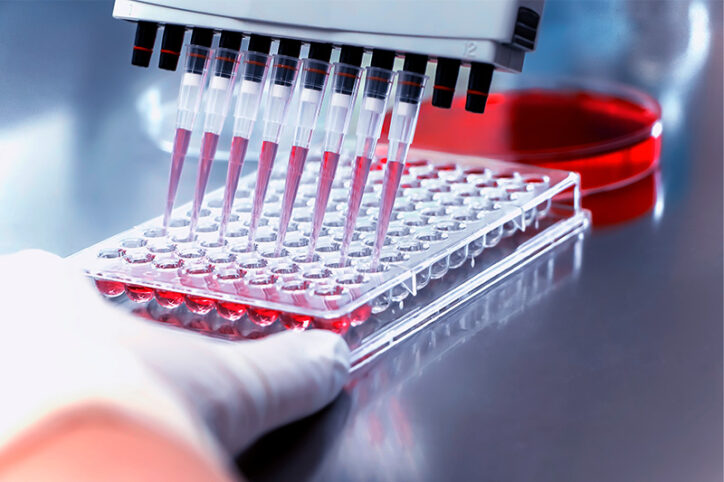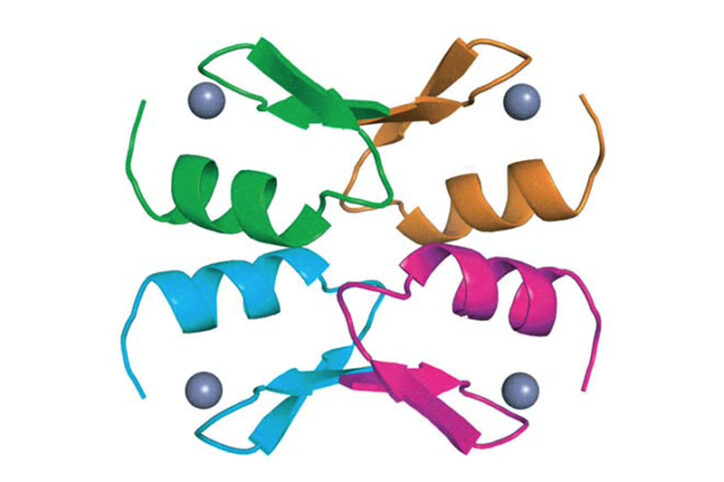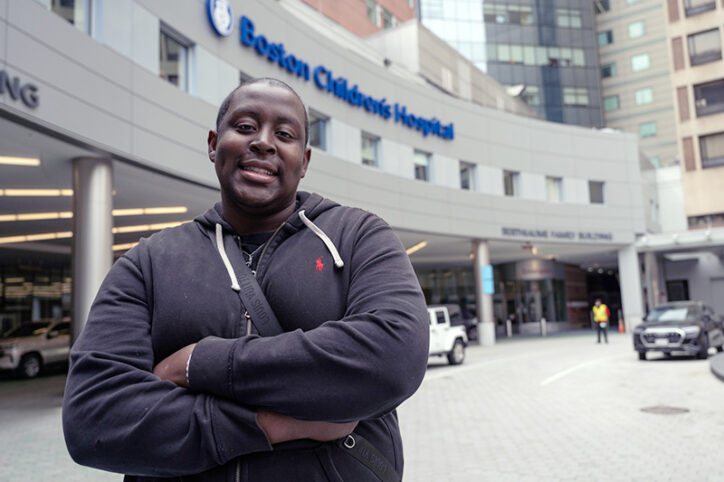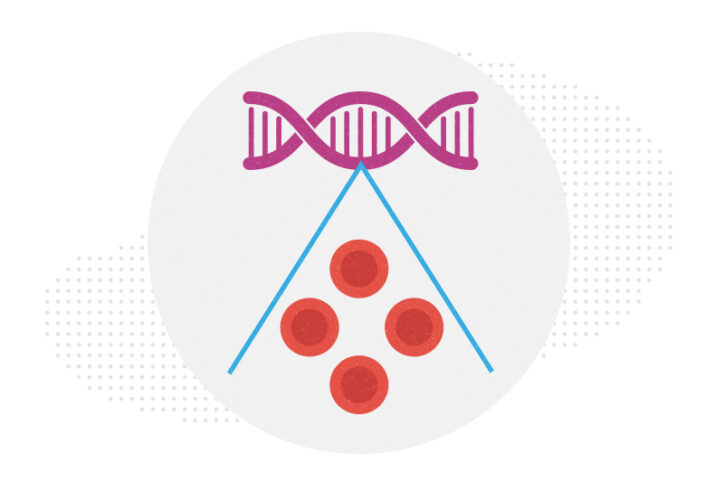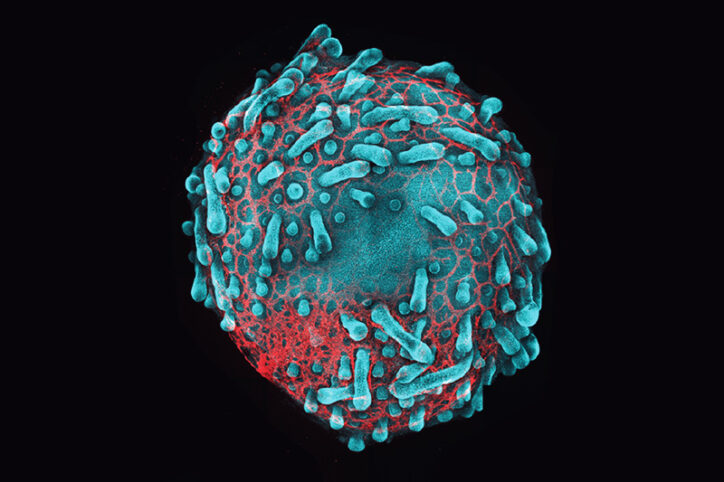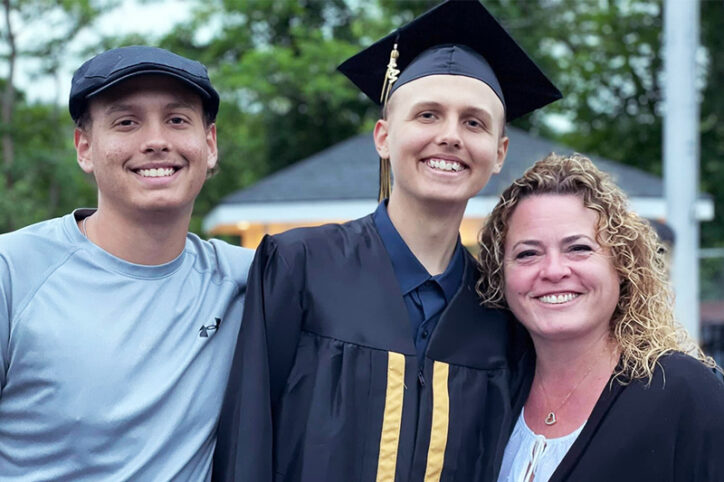Archive for Nancy Fliesler
Changing lives through genetics: The Children’s Rare Disease Collaborative
A 14-year-old girl was having back pain after a car accident and visited an orthopedic clinic at Boston Children’s Hospital. In the course of her care, she joined the Children’s Rare Disease Collaborative (CRDC), a hospital-wide effort to enroll children and adults with rare diseases in genetic studies. Genetic testing revealed that both she and ... Read More about Changing lives through genetics: The Children’s Rare Disease Collaborative
Tagged: diagnostics, genetics and genomics, rare disease, research
Model enables study of age-specific responses to COVID mRNA vaccines in a dish
mRNA vaccines clearly saved lives during the COVID-19 pandemic, but several studies suggest that older people had a somewhat reduced immune response to the vaccines when compared with younger adults. Why? Researchers at Boston Children’s Hospital, led by Byron Brook, PhD, David Dowling, PhD, and Ofer Levy, MD, PhD, found some answers — while providing ... Read More about Model enables study of age-specific responses to COVID mRNA vaccines in a dish
Tagged: coronavirus, immunology, infectious diseases, vaccines
Could a pill treat sickle cell disease?
The new gene therapies for sickle cell disease — including the gene-editing treatment Casgevy, based on research at Boston Children’s Hospital — have been game-changing for the patients who have received them. But Stuart Orkin, MD, the Boston Children’s hematologist whose work led the way to Casgevy, wants to go even further. “The editing therapy ... Read More about Could a pill treat sickle cell disease?
Tagged: drug development, hematology, sickle cell disease
A sickle cell first: Base editing, a new form of gene therapy, leaves Branden feeling ‘more than fine’
Though he doesn’t remember it, Branden Baptiste had his first sickle cell crisis at age 2. Through elementary school, he was in and out of the hospital with pain episodes, not knowing why. As he got older, he learned he had sickle cell disease. His red blood cells were forming sickle shapes and getting stuck ... Read More about A sickle cell first: Base editing, a new form of gene therapy, leaves Branden feeling ‘more than fine’
A universal gene therapy for Diamond-Blackfan anemia is poised for clinical testing
Diamond-Blackfan anemia (DBA), first described at Boston Children’s Hospital in 1938, is a rare blood disorder in which the bone marrow cannot make mature, functioning red blood cells. Children with this life-threatening anemia have few treatment options. A small handful with a well-matched donor can be cured with bone marrow transplant, but most rely on ... Read More about A universal gene therapy for Diamond-Blackfan anemia is poised for clinical testing
Tagged: anemia, blood, blood disorder, gene therapy, hematology
Skin organoid could guide new treatments for skin conditions, hair loss
What does it take to build healthy skin? Two research groups converged on this question from different angles. They’ve now produced the most detailed view to date of the cell types and cell collaborations that go into creating our body’s largest organ. Several years ago, Karl Koehler, PhD, and colleagues at Boston Children’s Hospital used ... Read More about Skin organoid could guide new treatments for skin conditions, hair loss
Tagged: organoids, plastic surgery
Making pediatric health equity research truly equitable: An EDI review process
A burgeoning number of studies are examining pediatric health equity, diversity, and inclusion (EDI). But if not done right, health equity research can do a disservice, perpetuating biases and wrong assumptions that actually exacerbate inequities. To guide EDI-related studies, the Institutional Review Board (IRB) at Boston Children’s Hospital (through Tina Young Poussaint, MD, and Susan ... Read More about Making pediatric health equity research truly equitable: An EDI review process
Tagged: health equity, research
Mutations during prenatal development may contribute to schizophrenia
Schizophrenia is known to have a genetic component, and variants in 10 genes have been identified as markedly increasing schizophrenia risk. But together, these genes account for under 5 percent of cases. Now, a pilot study in the journal Science suggests another important contributor to schizophrenia: distinctive patterns of non-inherited (somatic) mutations. These mutations appear ... Read More about Mutations during prenatal development may contribute to schizophrenia
Tagged: genetics and genomics, neuroscience, schizophrenia
Delving into the causes of attention deficits: Childhood adversity, lost sleep, and dopamine
New research on the effects of adversity in childhood ties together stress, sleep loss, and attention deficits later in life. It also uncovers some of the underlying brain biology and potential treatment approaches — while revealing a puzzling sex-specific effect. The lab of Takao Hensch, PhD, has long studied time windows during development — commonly ... Read More about Delving into the causes of attention deficits: Childhood adversity, lost sleep, and dopamine
Tagged: ADHD, developmental medicine, neuroscience, sleep
Cerebral adrenoleukodystrophy: How the Cooksons dodged a devastating disease
Heather Cookson believes that if she hadn’t insisted her son Ricky get a brain MRI to investigate his frequent headaches, neither he nor his younger brother Jerry would be walking or living full lives today. “I just wanted peace of mind,” she says. “Ricky got the MRI, and that’s when the lesion was found.” The ... Read More about Cerebral adrenoleukodystrophy: How the Cooksons dodged a devastating disease



